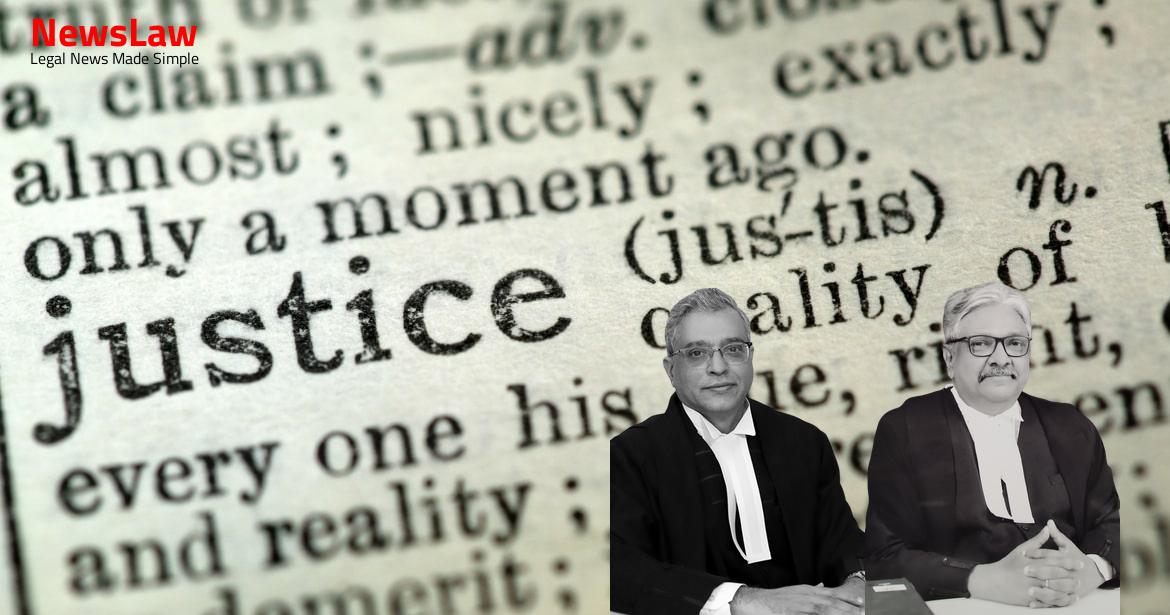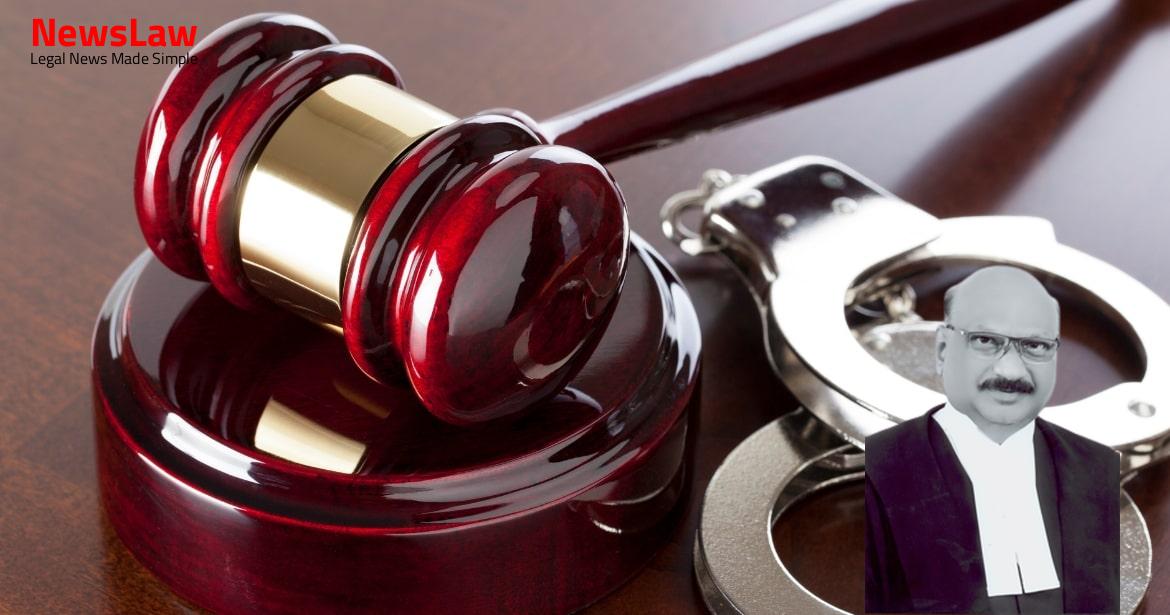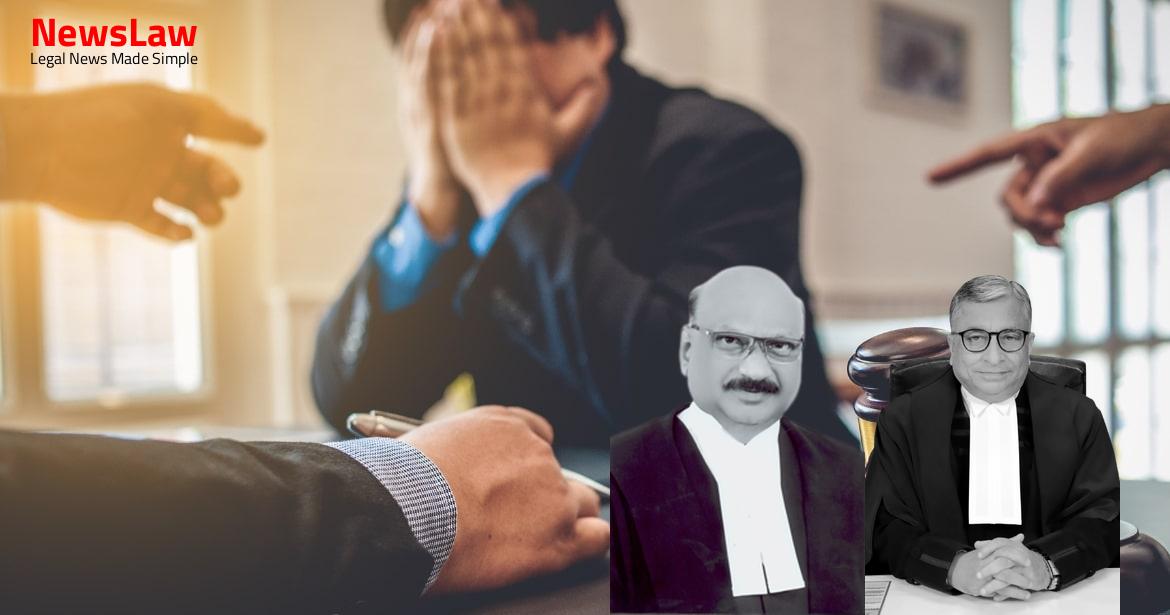Explore the significance of the court’s legal analysis in bail cases post-conviction. Upholding transparency and justice, the court’s proper adherence to legal procedures ensures fair and unbiased outcomes. This summary delves into the intricacies of bail post-conviction and highlights the crucial role of following prescribed procedures in legal proceedings.
Facts
- The appellant is the complainant in both appeals challenging the conviction.
- The criminal appeals were filed in 2019 before the High Court of Judicature at Patna.
- The second respondent in both appeals was tried for offenses including Section 302 IPC.
- The High Court passed an order under Section 389 of the Cr.P.C., releasing the second respondent on bail.
- The defendants were found guilty of the charges brought against them in the trial Court.
- The charges were proven beyond reasonable doubt, leading to their conviction.
- As a result of the conviction, the defendants were sentenced to life imprisonment.
Also Read: Court’s Jurisdiction in Re-appraising Arbitrator’s Findings
Arguments
- It is highlighted that the appellant does not question the locus of the appellant to challenge the order but asserts that no case for interference exists based on the facts.
- Reference is made to the principle established in the Kashmira Singh v. State of Punjab AIR 1977 SC 2147 judgment.
- The lack of reasoning justifying bail in a case where the trial court convicted the second respondent for offenses under Section 302 is mentioned.
- Emphasis is placed on the two-year bail duration granted to the second respondent in both cases following the impugned orders.
- The context of the impugned orders being passed through applications under Section 389 Cr.P.C. is explained.
- The appellant disputes the second respondent’s argument that they have been out on bail.
- The appellant asserts that they have pursued the matter as quickly as possible.
Also Read: Contrary Directions in Issuance of Letter of Intent
Analysis
- The appellate court must allow the Public Prosecutor a chance to present in writing reasons against releasing the convict on bail.
- The procedure outlined in the first proviso of section 389 must be strictly followed when considering bail for a person convicted of serious offenses.
- Transparency, avoidance of collusion, and proper assistance to the court by the State are emphasized through this procedure.
- If the Public Prosecutor fails to submit written objections, the court must mention this in its order.
- The court should consider various factors like gravity of the offense, criminal background, impact on public confidence, etc., even if not explicitly mentioned in the objections.
- Failure to follow the procedure specified by the first proviso has been noted by the court in previous judgments.
- The impugned orders in this case lack reasoning and are marred by a legal flaw of not following the prescribed procedure.
- Bail post-conviction differs from bail for undertrial prisoners under Section 439.
- The appellate court must give an opportunity to the Public Prosecutor to show cause in writing if considering the release of a convict sentenced to death, life imprisonment, or ten years or more.
- The State must file objections in writing if any cause is shown by the Public Prosecutor.
- If no cause is shown by the State in writing, the appellate court must record that fact.
- The impugned orders do not conform to the requirement of the law due to delays in handling criminal appeals.
- The High Court should not have kept the matter pending based on the filing of an SLP by a co-convict.
- Applications for suspension of sentence and bail should be considered on their individual merit.
- The Court must carefully consider each case when it comes to applications for suspension/bail.
- The High Court must reconsider the applications filed by the second respondents.
- Cancellation of bail can be sought by the public prosecutor in case of transgression of conditions based on the conduct of the applicant after bail is granted.
Also Read: Application for Stay in Civil Suit Rejected: Court’s Legal Analysis
Decision
- The appeals are allowed.
- Their fate will depend on the consideration of the applications.
- The impugned orders are set aside.
- The appellant stands convicted under Section 302 of the IPC.
- The High Court is directed to take up the applications and dispose of them within six weeks.
- The second respondent in both cases need not surrender during the consideration of the applications.
- The appeal is disposed of as per the signed reportable order.
- Pending applications stand disposed of.
Case Title: ALI AHMAD Vs. THE STATE OF BIHAR (2021 INSC 723)
Case Number: Crl.A. No.-001374-001374 / 2021



